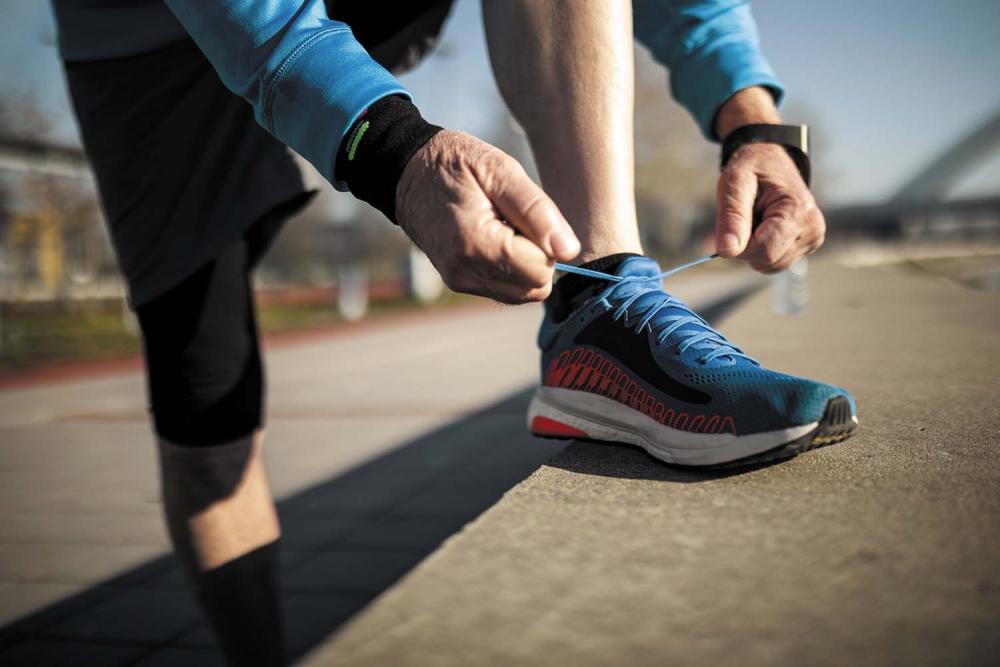


Starting a running journey can be incredibly rewarding, but it’s important to approach it the right way to avoid injuries and ensure steady progress. Whether you’re running for fitness or planning to complete your first marathon, following these tips will help you develop a sustainable and enjoyable running routine. Here’s a detailed guide to help you get started:
1. Start Slow and Build Gradually:
If you're new to running, it's tempting to jump right in and push yourself to run longer distances or at faster speeds. However, starting slow is crucial for injury prevention and building stamina.
If you’re preparing for a marathon, things to do before a marathon like following a slow, structured training plan are essential to avoid injury and build stamina."
Why It’s Important: Starting slow reduces the likelihood of overuse injuries, such as shin splints or stress fractures. It also helps you mentally adjust to the rhythm of running, which builds confidence and keeps you motivated.

2. Wear Proper Running Shoes:
Wearing the right running shoes is one of the most important aspects of running. The correct shoes provide cushioning, support, and protection, preventing injuries like blisters, shin splints, and joint pain.
"Choosing the right pair of shoes is critical for comfort and injury prevention. If you’re unsure, check out these tips to buy running shoes to help you make an informed decision."
Why It’s Important: The wrong shoes can lead to joint pain, blisters, and even more serious injuries like runner’s knee. Proper footwear ensures your body is supported, making your runs more enjoyable and safer.

3. Warm Up and Cool Down:
Proper warm-ups and cool-downs are often overlooked by beginners, but they play a critical role in improving flexibility, reducing muscle soreness, and preventing injuries.
Preparing for a marathon requires careful training, including proper warm-up and cool-down routines. For tips on how to prepare for race day, check out our guide on things to do before a marathon.
Why It’s Important: Warming up properly helps prevent muscle strain, and cooling down reduces post-run soreness, aiding in recovery. These practices can also improve your running performance in the long run.

4. Hydration is Key:
Staying hydrated is essential for both short and long runs. Dehydration can affect your performance and make you feel fatigued more quickly.
If you're tracking your runs, using a running watch can help you monitor your progress and stay on top of your hydration. Learn how to buy the best running watch to track not only your time but also your hydration and heart rate during training.
Why It’s Important: Proper hydration improves endurance, reduces the risk of cramps, and helps you maintain focus during your run. Dehydration can impair your ability to recover and cause injuries.

5. Set Realistic Goals:
Setting small, achievable goals is crucial to staying motivated as a beginner. Setting big goals can feel overwhelming, but smaller milestones make the process more manageable.
Joining a running group is a great way to stay motivated and get support. If you're in Mumbai, explore the best running clubs in Mumbai to help you achieve your goals and make running more social.Why It’s Important: Achievable goals not only build confidence but also keep you focused and give you something to look forward to. It also helps track your progress over time.

6. Listen to Your Body:
As a beginner, it's crucial to pay attention to what your body is telling you. Avoid pushing through pain, as it can lead to serious injuries that could sideline your progress.
If you’re feeling knee pain, it’s essential to check the condition of your shoes. Learn how the wrong footwear can contribute to injuries like runner’s knee and how to prevent it.
Why It’s Important: Injury prevention is key to a long-lasting running routine. Listening to your body ensures you don’t push yourself too hard and allows for proper recovery.



